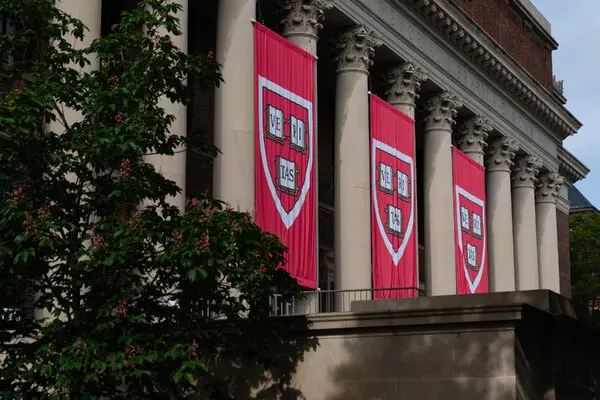A US federal judge has ruled that Harvard University can continue hosting international students. This decision is a setback for the Trump administration, which has tried to restrict the university’s international enrolment.
Judge Allison Burroughs of Boston issued the ruling on Friday. It allows Harvard to admit foreign students while the case is still ongoing. However, the decision does not remove all legal challenges the university faces on this issue.
The judge also stated that the federal government can still review Harvard’s eligibility to host foreign students. This must be done through the usual legal procedures.
Dispute over visa certification
The conflict began in May when the Department of Homeland Security withdrew Harvard’s certification. This certification lets the university enrol international students and issue visa documents. The withdrawal happened suddenly, with little warning.
Harvard responded by suing the department. The university said the move affected around 7,000 international students, or about a quarter of its total enrolment. New international students would also have been barred from enrolling.
Harvard claimed the action was a form of retaliation. The university had rejected government demands to change its policies on protests, admissions, and hiring. Judge Burroughs blocked the government’s action shortly after the lawsuit was filed.
In June, the Trump administration took a different approach. President Trump issued a proclamation to stop international students from entering the US to attend Harvard. The university challenged this as well, arguing it was an attempt to get around the court order. The judge temporarily blocked the proclamation, although her Friday ruling did not cover it.
Harvard sent an update to its international students. It said, “We expect the judge to issue a more enduring decision in the coming days. Our Schools will continue planning to support international students and scholars. We want them to pursue their academic work fully, even if visa or enrolment rules change.”
Students face uncertainty
The legal battle has caused uncertainty for many students. Some are already enrolled, while others are waiting to see if they can start their studies. Harvard said many students have asked about transferring to other institutions. Maureen Martin, who leads Harvard’s immigration services, confirmed this in a court filing.
Despite this, most students and admissions advisers believe that many still hope to attend Harvard.
One prospective student, Huang, received an offer from the Graduate School of Education after losing a place at Vanderbilt University. Federal budget cuts to diversity and inclusion programmes caused the loss of her original offer. Harvard awarded her a scholarship, and she quickly arranged a visa interview in Beijing. More than a month later, she still had not received a response, despite court orders in her favour.
“Why does it have to be so hard to go to school?” Huang asked on social media.
Impact on Harvard’s global standing
Harvard warned that the visa restrictions could damage its global reputation. In its lawsuit, the university said that removing international students would harm both its research efforts and academic standing.
Graduate programmes that rely on international enrolment would suffer most. In response, some universities overseas—including two in Hong Kong—offered places to affected students.
Wider dispute between Harvard and the Trump administration
The disagreement with the White House goes beyond student visas. Trump officials have criticised Harvard for leaning too far left and not doing enough to address antisemitism. In response, the administration cut more than $2.6 billion in research funding. It also ended federal contracts and threatened to remove Harvard’s tax-exempt status.
On Friday, President Trump posted on Truth Social that the administration was negotiating with Harvard. He said a deal might be announced soon. Trump added that the university was cooperating and seemed committed to resolving the issue.
In April, Homeland Security Secretary Kristi Noem had asked Harvard to hand over records about illegal or unsafe behaviour by international students. Harvard provided documents but Noem said the reply was not complete. On 22 May, she revoked the university’s certification to host international students.
Harvard said the decision gave it a disadvantage in attracting global talent. The university also said it threatened its position as a top research institution.
“Without its international students, Harvard is not Harvard,” the lawsuit stated.
President Alan Garber said Harvard had taken action to address antisemitism. However, he made it clear the university would not abandon its “core, legally-protected principles” under federal pressure.
